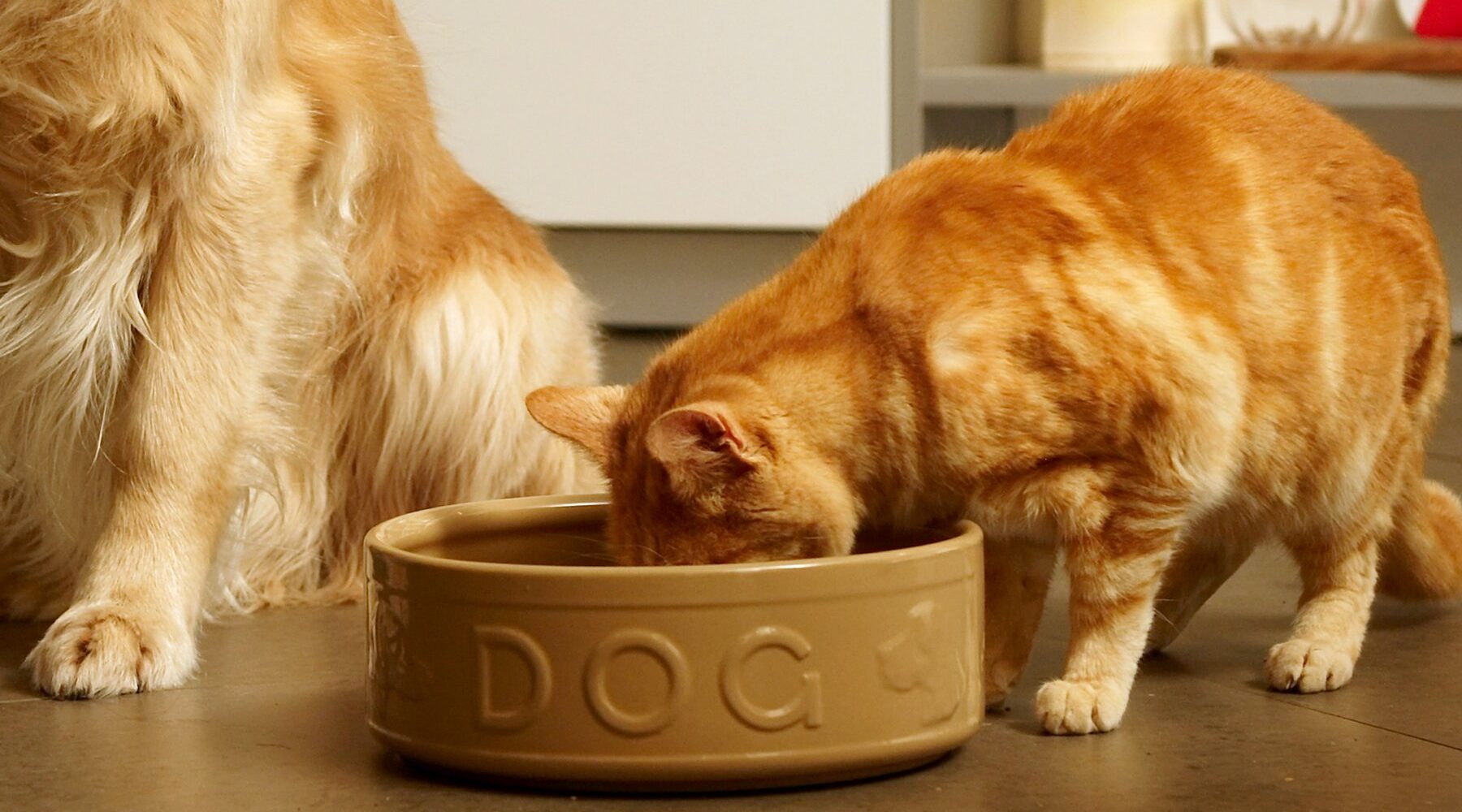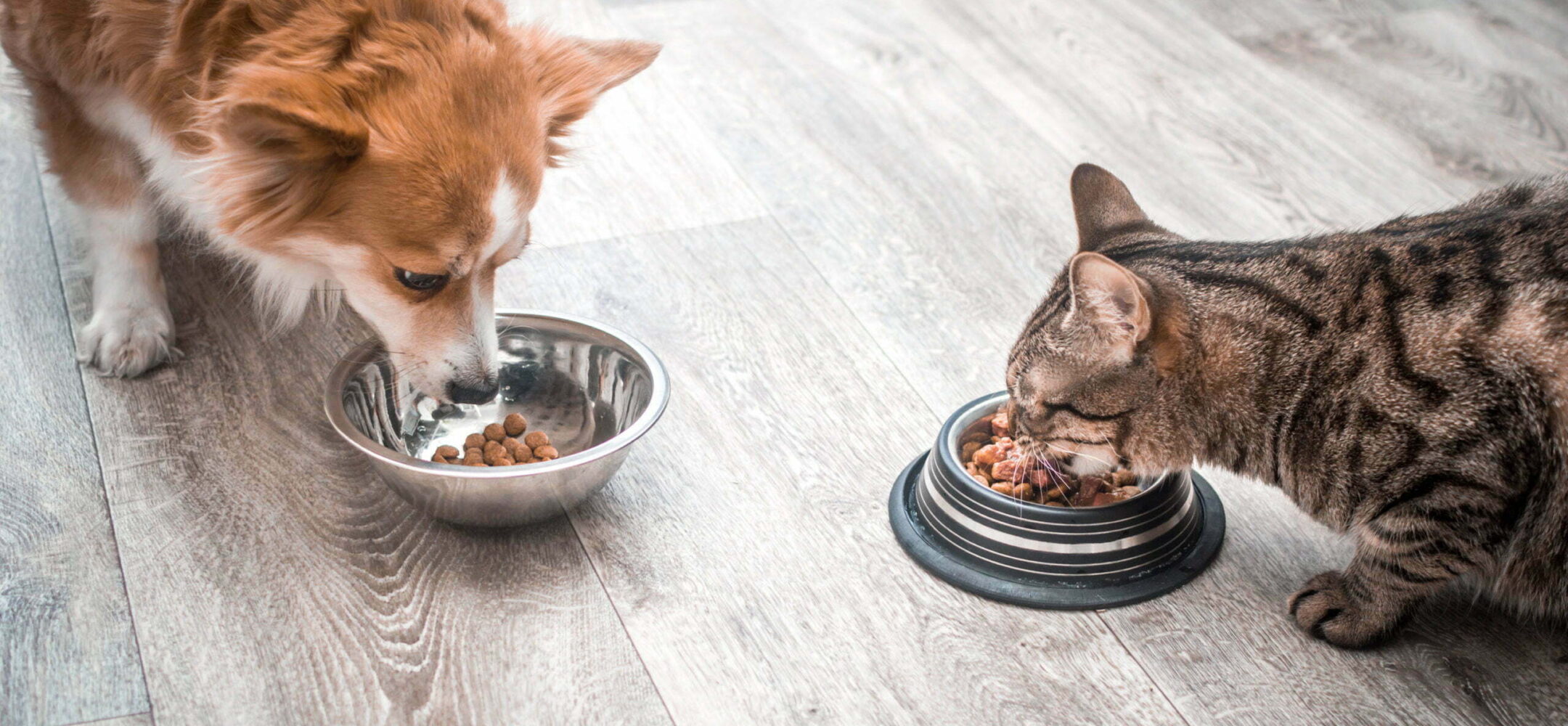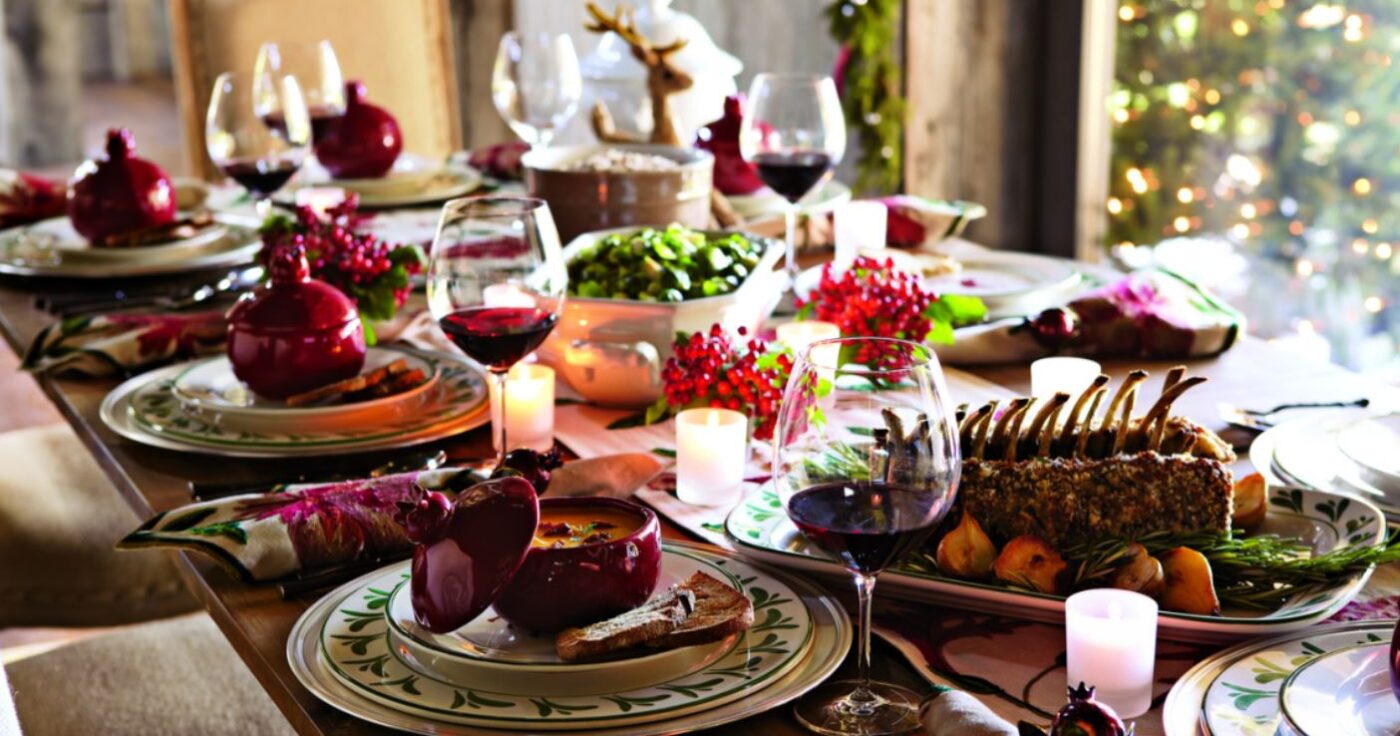Given the smorgasbord of different pet foods available these days, most pet parents know that their pets require diets tailored to their specific needs in terms of species, life stage, lifestyle and health status. But should we be worried if our dog and cat swap bowls?


Can Cats Eat Dog Food?
While the occasional snack from Fido’s bowl won’t cause any problems, the short answer to this question is NO! Dogs are omnivores (like we humans are). Although they thrive on a diet predominantly of meat protein, they do well when starches and vegetable matter are also included. Many dogs enjoy snacks of pumpkin, blueberries, bananas, marrows, apples or carrots.
On the other hand, cats are obligate carnivores, meaning they have to consume a high percentage of meat protein to get sufficient quantities of the 11 amino acids they require from their diet. Unlike dogs and humans, Cats cannot synthesize taurine within their bodies, so they rely on a meat-rich diet to supply this for them. The average commercially produced canine diet does not contain sufficient meat protein to provide enough of this essential amino acid for a cat. Eating dog food permanently will result in serious nutritional deficiencies for your feline friend. And it goes without saying that a vegetarian or vegan diet is an absolute no-no for cats and very difficult to balance correctly for dogs.


Can Dogs Eat Cat food?
Cat food, higher in protein and fat than dog food, is a tempting treat, and most dogs relish any opportunity to raid kitty’s bowl. Again, the occasional snack shouldn’t do any harm, but regularly eating cat food instead of a diet formulated specifically for dogs isn’t ideal. Cat food can bring on vomiting and diarrhoea in dogs with sensitive tummies, and it’s too rich in fat for obese dogs and those suffering from pancreatitis. The protein levels are way too high for a dog with kidney problems. That said, there are a handful of instances where a vet may recommend feeding your dog cat food instead of dog food. Diabetic dogs and those being treated for cancer will benefit from the lower carbohydrate formulation. Cat kibbles make a healthier “high value” training reward than common human-food choices like cheese or vienna sausages. Dogs with a poor appetite or muscle wasting could also show improvement on cat food (depending on the cause).
Always consult your vet before making any dietary changes for pets – our helpful and knowledgeable team at CVC are happy to assist.


Festive Foods to Avoid
It’s challenging to keep from sharing all the delicious goodies we enjoy over the Festive Season. Still, the last thing you want is an emergency visit to the vet due to a gastrointestinal upset, a bone or kebab skewer stuck in the throat, or poisoning. Ensuring that your animals are kept safely away from the following foodstuffs will go a long way towards avoiding a Festive calamity:
- Alcohol
- Chocolate
- Xylitol sweetener
- Caffeine
- Bones and skewers
- Grapes and raisins
- Onions and garlic
- Avocado
- Plums, apricots, peaches and other pitted fruits
- Bread dough
- Rich, fatty or spicy foods
Although there are many similarities between our pet dogs and cats, their nutritional needs are quite different and veterinary advice should be sought before making any dietary changes. But don’t be too stressed if your curious pooch nabs the odd kitty kibble or if Felix gives the new puppy’s dinner a taste test. All should be well, provided they don’t make it a permanent swap.
